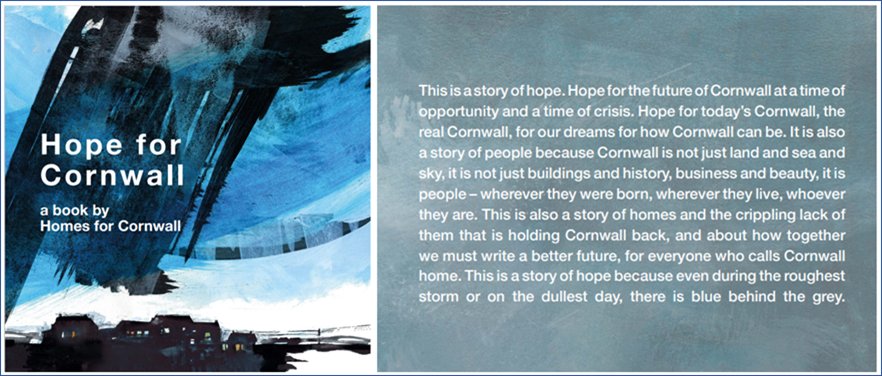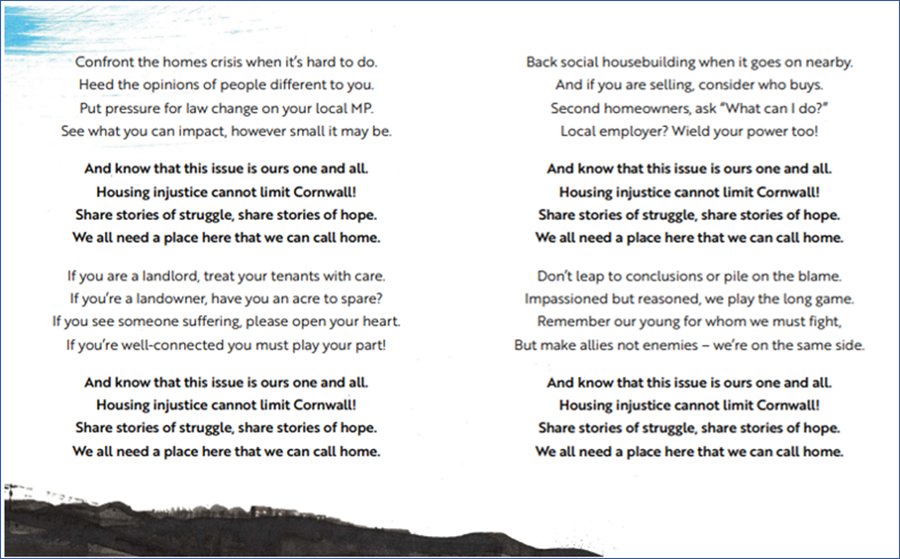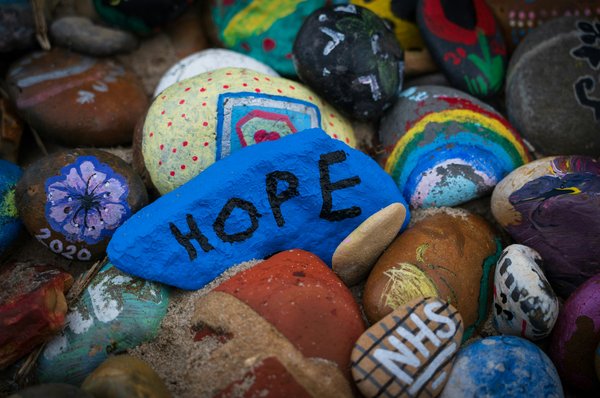In his latest opinion piece CEO of Coastline Allister Young talks about the power of story-telling and how that power can be used to help or to harm in society at large
I was reminded last week of the importance of story-telling in politics and public policy. When I say ‘story-telling’ I don’t mean making things up. I mean trying to make people understand ‘the why’ about things, rather than just focusing on ‘the what’.
There were two things that crystallised this for me last week.
The first was when I went to the Cornish ‘Holyer an Gof’ Book Awards last Saturday in Redruth (at Kresen Kernow). I was there because the ‘Homes for Cornwall’ movement that Coastline is involved in had helped publish a book about housing in Cornwall, which was shortlisted for an award. The book is called ‘Hope for Cornwall’. It’s an attempt to set out a positive vision about the importance of housing in Cornwall. It’s an attempt to try and persuade people by telling a story, rather than bludgeoning people with facts or resorting to blame. We thought that if we set out to talk about housing by telling a story, we could capture people’s imagination, and perhaps change some people’s minds. Thanks to the wonderful Helen Trevaskis it’s a beautiful book, which you can download for free here (or you can buy a physical copy here, or listen to the audiobook here).

The second thing I saw last week was less positive. It was an image from Northern Ireland (where I’m from). There is a tradition every year on the 11th July that bonfires are lit. It started back in the 18th century, and marks the arrival of King William in Ireland in 1690, which began the Protestant Ascendancy in Ireland. The bonfires are a big deal in Protestant communities in Northern Ireland, a big deal in numbers and in size. There are about 250 every year, and some of them are MASSIVE.
The unpleasant side of the bonfires is that it is not uncommon for effigies to be burnt. When I was growing up it would often be the Pope, or unpopular local politicians. This year something new emerged. The burning of models of refugees on boats.
This is pretty awful stuff, and part of me doesn’t even want to try and understand why someone would do this. But if I force myself to, I can see where it comes from. The story that is told to us by some politicians is that our social housing, health systems, and other essential infrastructure, is under pressure because of ‘the boats’. It’s a simple story that can take root because people are understandably frustrated at the state of our social infrastructure, and it seems to make logical sense.
But it’s far from true. Taking housing as an example. The reason there isn’t enough social housing isn’t because of asylum seekers on boats (and let’s not forget that more than two thirds of the roughly 37,000 people who come across on boats are found to have a legal right to come to the UK). It’s because there has been decades worth of failure by successive governments to get to grips with how many homes the country needs, to develop a strategy to make sure they get built, and to tell a story about why it is important. This abject failure leaves a vacuum, a black hole, and it’s no surprise then that people get frustrated and scared for their future and their children’s futures, and will look for other stories to try and explain what is happening.
We can do better. And that is why Coastline supports the Homes for Cornwall movement. We believe that setting out a positive vision for the future is the best way forward. Because it’s natural for people to be scared of change, and I see it as our responsibility to try and help by providing a positive vision of what is possible.
That approach also underpins how we describe the work that Coastline does. And later this year I’ll be excited to share the launch of the Coastline Plan 2025-30 with you all. I hope you’ll enjoy reading it. I guarantee that it remains as positive and ambitious as the Coastline Plan 2021-25 that it replaces, setting out the same vision to ‘end the housing crisis in Cornwall’.

Finally, I’d like to end with a bit of a music recommendation that fits with the theme of this piece - here is ‘Cornwall My Home’, performed by Fishermen’s Friends. I recommend that you sing along using the alternative lyrics that you can find in the ‘Hope for Cornwall’ book. They were written by Helen Trevaskis, and have the blessing of Harry Glasson, who wrote the original.

